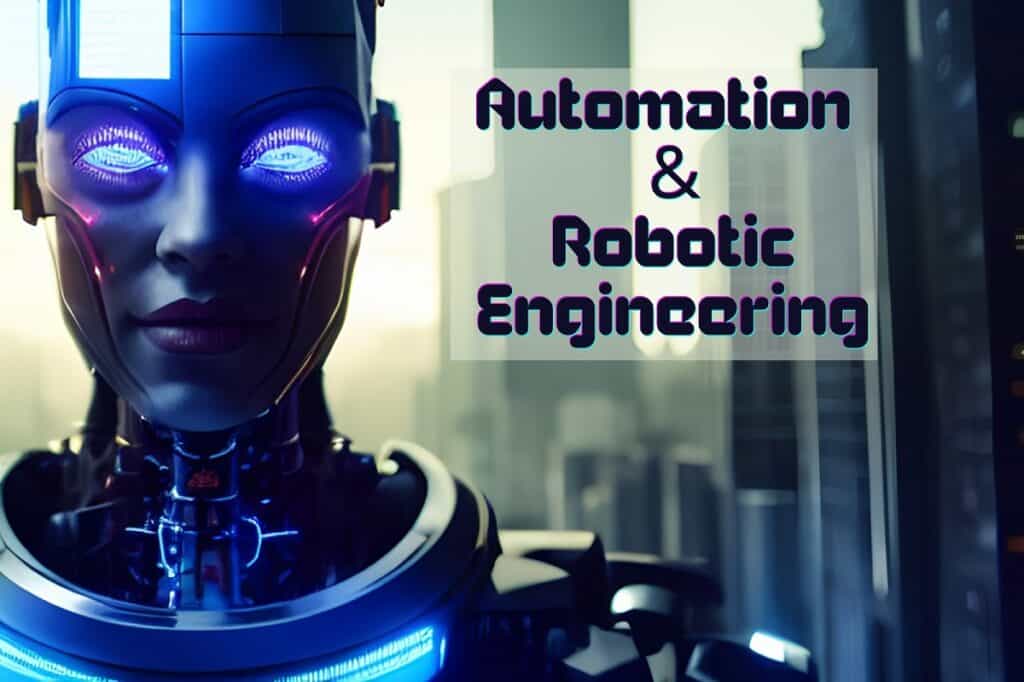Automation and Robotic Engineering
Automation and robotic engineering are transforming the way Indian industries operate. It has existed for many years, but its use in industrial applications is still relatively new. By using automation and robotics, organizations can increase efficiency and reduce costs while improving safety and accuracy. As a result, many Indian industries have embraced automation and robotic engineering to stay ahead of the competition.
Robotic engineering enables machines to perform tasks that humans once did. This technology has made it possible for machines to do repetitive or dangerous jobs that would otherwise require human labor, reducing both the time spent on such tasks and their potential risks. Automation also increases accuracy by allowing machines to perform tasks precisely, reducing errors that could lead to costly repairs or replacements. In addition to increasing efficiency and safety, automation and robotic engineering are helping Indian industries stay competitive in an ever-changing global market. By automating specific processes, companies can reduce operational costs while still delivering quality products or services at a lower price than their competitors.
Top Institutes in India Offering Automation and Robotic Engineering Courses
Indian Institute of Technology (IIT): IITs are one of India’s premier engineering education institutes. Most IITs offer automation and robotics engineering courses .
Indian Institute of Science (IISc): IISc is one of the top research institutes in the country, offering courses on a wide range of subjects, including robotics, automation, artificial intelligence, etc.
Delhi Technological University (DTU): DTU offers several courses related to robotics and automation. It also has a Robotics Lab where students can gain hands-on experience with various robots.
University of Mumbai (MU)
MU has a well-equipped Robotics Lab where students can work on projects related to robotics and automation. It also offers several undergraduate and postgraduate courses on these topics.
Anna University
Anna University is one of the leading technical universities in India that offers several courses related to automation and robotics engineering.
BITS Pilani
BITS Pilani is known for its rigorous academic standards, making it one of the best institutions to pursue courses in robotics or automation engineering.
Job Profiles in Automation and Robotic Engineering
- Robotic Process Automation Developer: This role requires programming skills to create automated processes. The developer should understand RPA software, such as UiPath or Blue Prism, and have experience with coding languages like Java, Python, or C#.
- Robotic Engineer: This role involves designing, building, and maintaining robots for industrial use. The engineer should understand electronics, mechanics, and computer science well.
- Robotics Software Engineer: This role requires strong programming skills to develop software that controls robots. The engineer should understand robotics principles and coding languages like Java, Python, or C#.
- Robotics Technician: This role involves troubleshooting and repairing robots on the factory floor. The technician should understand robotics principles and have experience with tools like soldering irons.
- Robotics Programmer: This role requires programming skills to write code that instructs robots on what tasks to perform. The programmer should have an understanding of robotics principles as well as coding languages like Java, Python, or C#.
Scope of Automation and Robotics in India
The Indian manufacturing industry is undergoing a massive transformation due to the introduction of automation and robotic engineering. Automation and robotics have enabled companies to reduce costs, increase productivity, and improve quality. As a result, the scope of automation and robotics in India is growing rapidly. Automation and robotics are used for various purposes in the manufacturing sector. For example, robots are used for material handling, welding, assembly line operations, and packaging. Automation systems are also being used to monitor production processes and provide real-time feedback on performance.
In addition, automation has enabled companies to reduce downtime by automating tasks previously performed manually. Robotic engineering has also made it possible to develop more efficient production processes. For example, robots can be programmed to perform specific tasks precisely, significantly reducing errors that could occur in manual operations. This has allowed companies to reduce operational costs while still producing high-quality products.
In addition to the manufacturing sector, automation, and robotics also find applications in other industries, such as healthcare, agriculture, logistics, retailing, and transportation. Robotics is used for medical procedures such as surgeries and agricultural tasks such as harvesting crops or tending livestock. Automation systems are also used for warehouse or supply chain management systems, which help optimize inventory levels or manage orders efficiently. Overall, the scope of automation and robotics is vast and growing rapidly due to its potential to revolutionize various industries nationwide.
Steps Taken by the Government to Promote Automation and Robotic Engineering
The Indian government has undertaken various initiatives to promote automation and robotic engineering in the country. The Ministry of Skill Development and Entrepreneurship (MSDE) has launched the National Policy on Skill Development and Entrepreneurship 2015, which aims to create a skilled workforce in India by 2020. The policy focuses on developing skills in automation, robotics, artificial intelligence, and other digital technologies.
The government is also promoting research and development in these areas. It has set up several research centers across the country that are dedicated to studying robotics and automation. These centers are developing advanced technologies that can be used in industry.
The government has also established several incubation centers dedicated to supporting entrepreneurs who want to start businesses related to automation or robotics. These incubators provide financial assistance, access to mentors, guidance from experts, and access to resources needed for starting a business. To encourage companies to use automated systems, the government has also introduced tax incentives for companies that invest in automation or robotic engineering projects. This helps companies adopt new technologies that can improve their productivity and efficiency.
The government also ensures students are exposed to these new technologies early on. It introduces courses related to robotics and automation at universities nationwide so that students can understand how these technologies work before entering the workforce. Overall, it is clear that the Indian government is taking serious steps toward promoting automation and robotic engineering. By providing tax incentives, setting up research centers, creating incubators for entrepreneurs, and introducing courses at universities, the Indian government is helping create an environment where businesses can take advantage of these new technologies without having any significant financial burden on them.



